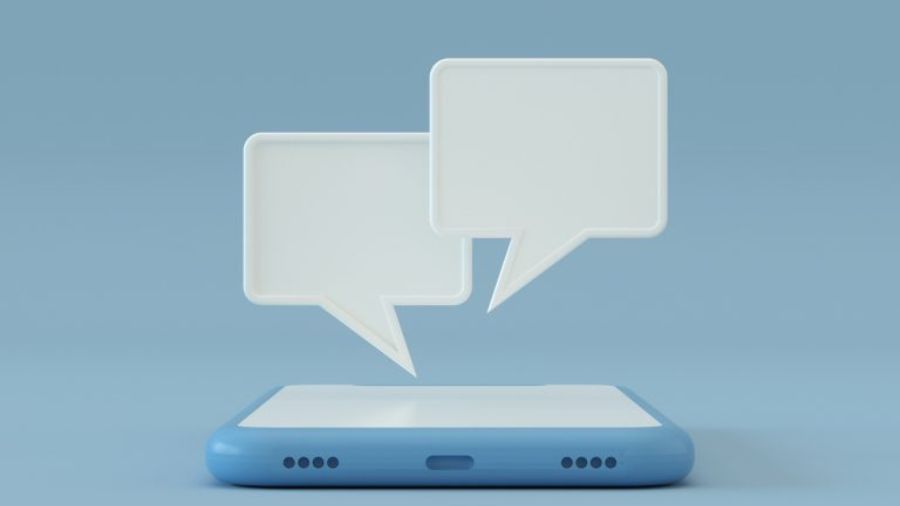Text or video? Which is better for treating depression?
Oct 30, 2025, 4:45 PM

A graphic of a smartphone with chat bubbles from text messages appearing on top. (Photo courtesy of Getty Images)
(Photo courtesy of Getty Images)
A new study out of the University of Washington (UW) said message-based therapy — things like texts, emails, even voice memos — is just as effective as video sessions when it comes to treating depression.
Researchers followed 850 adults over 12 weeks. Whether patients received help through messages or face-to-face video chats, the results were essentially the same.
There were some differences, though: more people chose message-based therapy, but those who participated in video sessions tended to build stronger connections early on.
“We found that patients improved at similar rates, regardless of whether they were communicating with their therapist through messaging or live video calls,” said Patricia A. Areán, retired professor of psychiatry and behavioral sciences at the UW School of Medicine and a senior author of the study. “This supports the use of text-based therapy as a viable, evidence-based way to treat the millions of Americans who experience depression every year.”
UW depression study variables
According to a news release from UW Medicine, participants were randomly assigned to one of the formats for 12 weeks.
“Those who did not respond after six weeks of treatment were re-randomized to receive a combination of both modalities,” the release said. “At the end of the trial, participants in both groups showed comparable improvements in depression symptoms and social functioning.”
“Depression is one of the leading causes of disability and mortality worldwide,” said healthcare practice and policy researcher Michael Pullmann, former research professor of psychiatry at the UW School of Medicine and the paper’s lead author. “Message-based psychotherapy can help practitioners reach patients who may not otherwise be able to access care.”
The people who took part in the study received psychotherapy through the commercial online mental health platform Talkspace.
The study was published Thursday in JAMA Network Open.


















